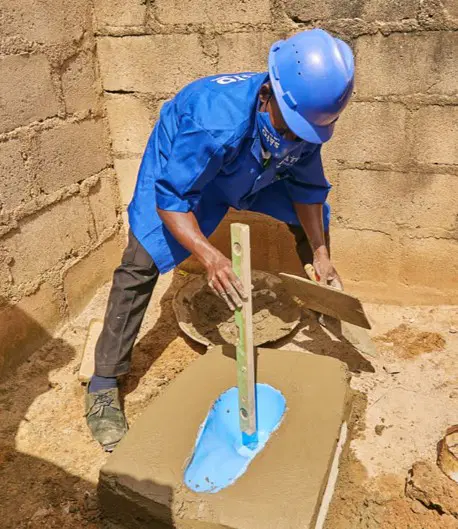In a rural village in South West Nigeria, the Ademola family faces ongoing hardship due to disease and poverty. Their home, a modest hut, is surrounded by the pervasive smell of human waste, as open defecation is their only option due to a lack of sanitation facilities.
The family’s health is severely impacted by this situation. Five-year-old Bukola frequently suffers from diarrhea and worms, while her older brother, Ola, has been diagnosed with river blindness, a Neglected Tropical Disease (NTD) caused by parasitic worms transmitted by blackflies. Their parents, who work long hours in the fields, struggle to provide for their family, leaving the children vulnerable to these diseases.
The Ademolas’ plight reflects a broader issue faced by millions of Nigerians who live in areas lacking adequate sanitation and healthcare. NTDs such as onchocerciasis, schistosomiasis, trachoma, lymphatic filariasis, and soil-transmitted helminthiasis contribute to a cycle of poverty, malnutrition, and poor health.
Communities across Nigeria experience the severe effects of these diseases. Onchocerciasis, or river blindness, has led to blindness in many, impeding their ability to work and care for themselves. Lymphatic filariasis, or “elephantiasis,” causes painful swelling of limbs and social stigma.
Aderayo, Ola’s mother, recalls his diagnosis with sadness: “He used to be so strong and hardworking. But now, he can barely see. It’s been so difficult for us.”
Baale Babalola Abidemi of Alagba Village in Oyo State acknowledges the health risks posed by open defecation, a deeply ingrained cultural habit. While the village has made progress with the construction of some latrines, convincing villagers to adopt new practices remains challenging.
Despite these efforts, open defecation persists. The WASH National Routine Mapping (WASHNORM) report of 2021 indicates that 48 million Nigerians still practice open defecation, and over 200 million are at risk of one of 17 NTDs. Nigeria has the highest burden of NTDs in Africa, underscoring the urgent need for improved sanitation and healthcare.

